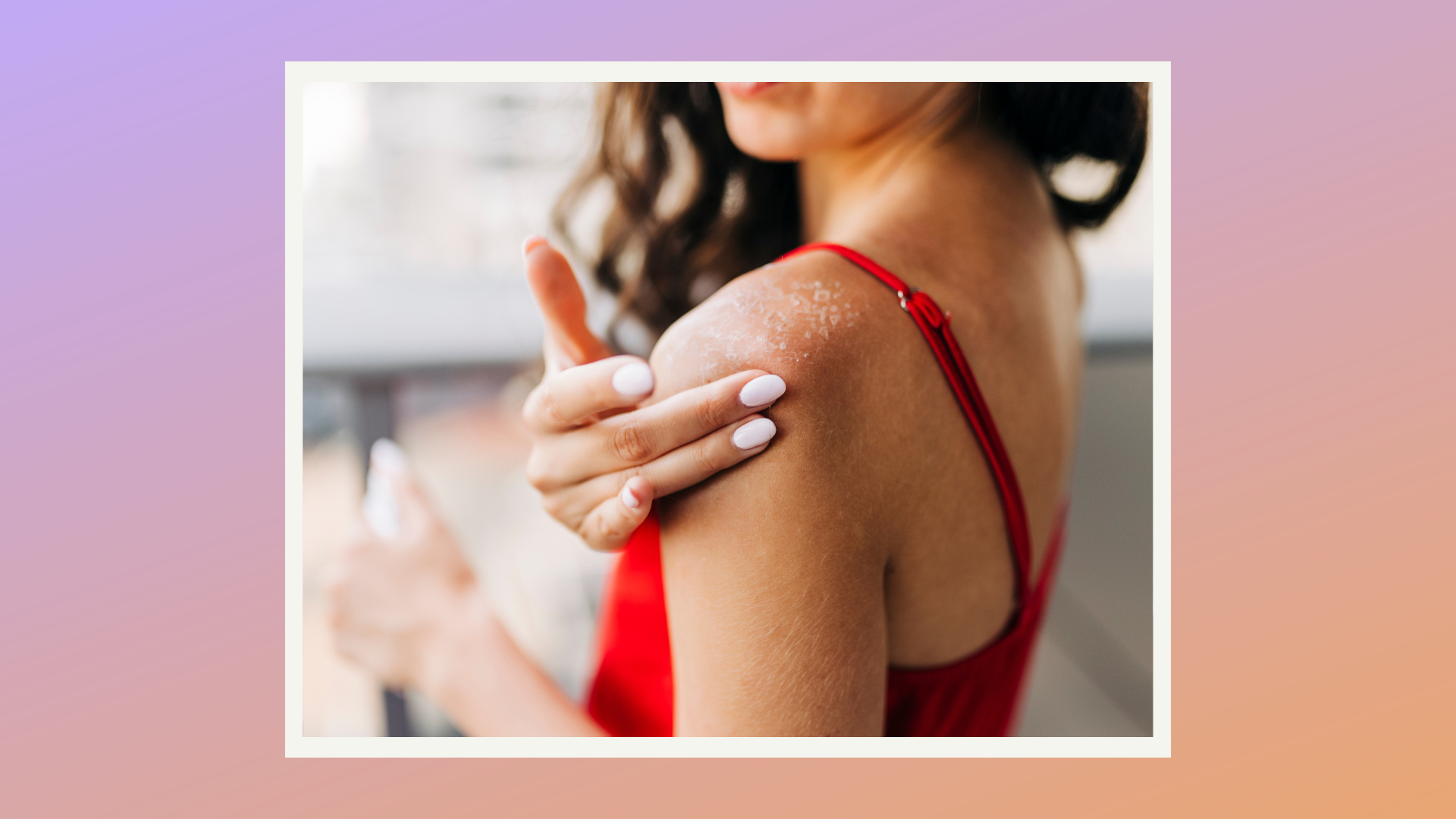Sunscreen vs sunblock: what’s the difference between these two SPF products?
We asked experts to clear the confusion around sunscreen vs sunblock so that you know the difference going forwards


We all know that applying SPF every day is a must, but weighing up sunscreen vs sunblock isn't quite so clear-cut. They sound like the same thing and, we'll be honest, we used to think they were, until we found out that they're really not.
Both formulas have their strengths and weaknesses, but your best sunscreen for face coverage will depend on your personal preferences about your skincare routine. We have personal favorites, one of which is Kiehl's Ultra Light Daily UV Defense Aqua Gel SPF50 and you probably have yours, too. The best way to make an informed decision about which is right for you is to learn exactly what goes into both and what makes them so different.
To help you make that decision, we asked some skin experts to clearly break down the differences so that you're equipped to decide between the two formulas going forwards. Here's what you need to know about sunscreen vs sunblock...
Meet the experts on sunscreen and sunblock
- Sanem Ahearn is the head of marketing at sun protection skincare brand Colorescience and has explained how sunscreen and sunblock work.
- Dr. Robert Goldman is a cosmetic surgeon who has explained some of the pros and cons of both sunscreen and sunblock.
What's the difference between sunscreen vs sunblock? Experts explain
Sunscreen and sunblock are different because of what they’re made of and the way that those ingredients interact with the skin.
Sunscreen often refers to “chemical” SPF products, usually lightweight formulas that spread fairly easily on the skin. As the American Academy of Dermatology Association notes, they are usually made with one or more of the following chemical filters: oxybenzone, avobenzone, octisalate, octocrylene, homosalate, or octinoxate.
On the other hand, "physical" sunscreen is what's usually being referred to by the term sunblock. It’s usually thicker, heavier, and composed of filters like titanium dioxide and zinc oxide. So, how do these different compositions affect the sunscreen vs sunblock debate?
“Sunscreen works by being absorbed into the skin, aiming to prevent the sun’s UV rays from damaging the skin’s dermal layers,” explains Sanem Ahearn, the head of marketing at Colorescience. “On the other hand, sunblock sits on top of the skin to act as a barrier between UV rays and your skin.”
Essentially, chemical sunscreen filters UV light and releases it from your skin. Physical sunscreen, or sunblock, acts as a barrier that deflects UV rays away from your skin. However, neither of them are of any use at all if they're out of date, so make sure you always check your sunscreen expiration. And just for the record, if you often ask yourself 'does sunscreen prevent tanning?' then rest assured, the answer is no.
What are the pros and cons of sunscreen?
Sunscreen and sunblock are both effective in protecting skin from harmful UV rays, and subsequently from burning, visible damage, and an increased risk of skin cancer—so we’ll consider that a pro for both of them.
A pro for sunscreen is how easily it absorbs into the skin, making it invisible, whereas sunblock sits on top of the skin and can leave behind an obvious white cast.
Chemical sunscreens aren't always the best fit for skin that is sensitive and or reactive. "It is considered to be potentially harmful,” says cosmetic surgeon Dr. Robert Goldman. “Some chemicals involved in the making are observed to have adverse effects on one’s skin.”
Oxybenzone is the most concerning chemical in sunscreen, according to the American Cancer Society. It can cause allergic reactions in some users, and there is evidence suggesting it might even have an impact on levels of free radicals. Sunscreen also has the potential to negatively impact the environment, particularly coral reefs.
What are the pros and cons of sunblock?
If you find that your skin reacts to a lot of sunscreens, it’s possible that sunblock is the better option for you. “Sunblock is mainly more effective for people with sensitive skin and children,” Dr. Goldman confirms. It’s mineral-based, which means it’s less harsh on the skin and can cause fewer issues in sensitive or reactive skin.
However, “Sunblocks lie on the skin and are often opaque or visible,” adds Dr. Goldman. Using sunblock at the beach or pool might not be much of an issue. But visible white stripes aren't always a welcome accessory to a cute new outfit when you’re heading out. It can also feel a little heavy on the skin if you moisturize too—which we address in another guide: Should you use suncreen or moisturizer first?
Should I use sunscreen or sunblock?
Ultimately, the best choice is the one that you're going to use and use regularly. When it comes down to it, sunscreen and sunblock are both great options, as both protect your skin from UV rays—whether by absorbing and releasing them or by blocking them entirely. Your choice will depend on your skincare preferences.
So before you head out for the day, don’t forget to put on the most important makeup you have: your sunblock or sunscreen.

Aleesha was Deputy Editor and Beauty & Fashion Editor for My Imperfect Life, where she headed up the beauty, fashion and eCommerce pages. Previously she was Shopping Writer at woman&home and gained an AOP awards nomination after working on their news team. She earned an MA in Magazine Journalism from City, University of London in 2017 and has since worked with a number of brands including, Women's Health, Stylist and Goodto. When she’s not testing all the new beauty & lifestyle products on the market, Aleesha spends her time soaking up the newest bestsellers and Netflix releases, watching everything Marvel, learning about different wines, attempting new languages and traveling as much as she can.